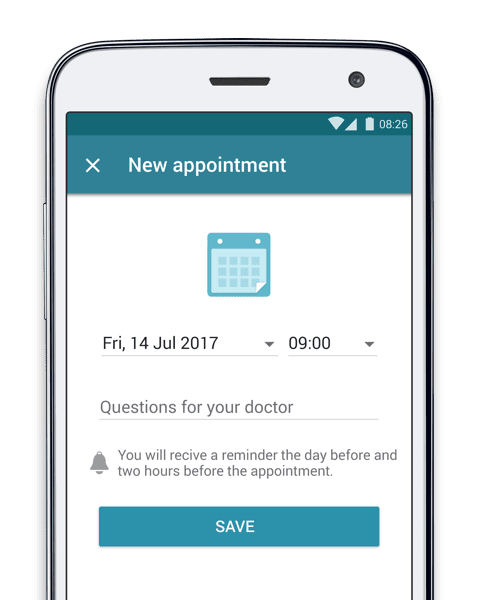The potential for smart speakers to detect serious health conditions, such as cardiac arrest, is seen by many as a revolutionary and life-saving technology. While this may sound fantastic, there are widespread concerns about the technology that must be overcome if it is to be used in the real world. Here are 5 reasons why this innovative tech is also controversial.
1. The Choice Between Safety and Privacy
Smart speakers, such as those powered by Google Assistant and Amazon’s Alexa, could soon become capable of detecting various medical conditions. Chief among the conditions that speakers may be able to detect are cardiac arrest, which is characterized by agonal breathing, and mental health conditions. By constantly listening and analyzing how you speak and breathe, smart speakers are able to pick out any abnormalities relating to your health and emotions based on toned nuances.
Despite being capable of saving lives, the methods used will definitely face controversy. The biggest concern is the issue of privacy and whether how much information Amazon, Google, or any other company are privy to. According to Dr. Peter Chai, an assistant professor of emergency medicine in Brigham and Women’s Hospital in Boston, Amazon’s smart speakers have had a history of being active even if they’re not wanted, implying that these devices were recording users’ conversations without their knowledge or consent. British security researcher, Mark Barnes, managed to hack into the 2015 and 2016 versions of the Amazon Echo and turn it into a live microphone. Google is reportedly guilty of this as well. During a launch event in 2017, several faulty Google’s Home devices were found to be almost continuously recording despite not being activated, highlighting a huge privacy issue that could take place in many smart speakers.
As quoted by Eric Topol, M.D, who is an expert in Artificial intelligence (AI), “I think it’s clever and represents yet another way to track someone at risk [for cardiac arrest], but it is creepy to have continuous listening surveillance.” Ultimately, it is up to the consumer to decide how comfortable they are with third party entities listening in.
2. Profit over People’s Interests?
Tech giants Google and Amazon have filed multiple patent applications that cover a range of prospects for how smart speakers can be used to monitor what users say and do. Patents include several “voice sniffer” algorithms that are programmed to detect trigger words from users. Trigger words refer to words such as “like”, “love” and “hate”. When identified, the algorithm would examine the audio in real-time and would take note of the products that are the subject of these trigger words and create a database of the user’s preferences. These companies are then privy to information such as people’s interests and they could use this to conduct advertisement targeting and product recommendations.
While some people might be comfortable with personalized advertisements that meet their interests, others question whether the products marketed to them are truly beneficial or are just part of Amazon’s or Google’s profiting scheme. For example, if you let out a sniffle and Amazon Alexa concluded that you’re sick, it might start showing you targeted advertisements of flu medicine produced by a pharmaceutical firm that paid for advertisement space but might not be the most effective remedy. While this might be a hypothetical situation, there are concerns that this is the primary aim of the developers of the software.
The technological advancement from “voice sniffer” algorithms to smart speakers actually being able to detect health problems is already in progress that many anticipate being a reality in the coming years. From a profit-optimizing standpoint, it is only logical that tech giants make full use of this technology and conduct targeted marketing. Should users wish to benefit from detection software, therefore, they would have to accept the marketing efforts that may come with it as well.
Other posts you may be interested in on the MyTherapy blog:
- 5 Ways Smart Speakers Could Detect a Health Issue (and Possibly Save Your Life)
- Heart Rate Monitoring with Smartphones and Wearables: What You Need to Know
3. The Trouble in Differentiating Between Human and AI
Along with the possibility of smart speakers to detect health conditions, Amazon’s recent partnership with Britain’s National Health Service (NHS) is a hint that the next step for these devices is to provide medical information when users ask health-related questions. Beyond that, could they potentially become tools for diagnosing and even treating certain conditions?
The likes of IBM's Watson and various Google tools, among many others, have proven themselves as remarkably competent physicians in a variety of ways, from diagnosing breast cancer to analyzing genetic data. They can then provide actionable treatment advice. Treatment-wise, even relatively simple instant messaging exchanges with chatbots have even proven effective in helping treat mental health disorders. This ability of artificial intelligence (AI) to detect health problems and then provide advice – and, in some cases, treatment – is an increasingly realistic proposition. One obvious possible use would be therapy as well as ‘virtual check-ups’. It seems only natural that smart speakers will be one of the tools used to realize this potential.
However, this raises additional concerns on top of the aforementioned issues surrounding privacy and advertising. There is a plausible chance that people could accept answers given by smart speakers as a conclusive answer and fail to seek proper diagnosis and treatment. Should your speaker be capable of offering medical advice, who is accountable if that advice turns out to be incorrect and, potentially, harmful? Regulations regarding the use of AI in healthcare are, at best, in their infancy.
There is also the potential that people won’t realize they are talking to a machine at all. Google Duplex has demonstrated just how lifelike AI can be, going so far as to use fillers like “uhh” and “umm.” Speaking to a human voice can be reassuring when it comes to sensitive issues such as health, so it is conceivable that hyper-realistic AI will be used in smart speakers. However, smart speakers are not bound by doctor-patient confidentiality, implying that companies could take advantage of your data without your knowledge.
Again, while this can be a powerful tool for the health industry (and one that can save huge sums of money and increase efficiency in diagnosing and treating patients), users need to be made explicitly clear who – or what – they are talking to, and how the information they share is being used.
4. Passing the Proof-Of-Concept Stage
The ability for smart speakers to detect life-threatening health conditions might sound too good to be true and, in a way, it is. While experiments have been carried out and certain claims have been made, there is still much to be done to move this technology from the proof-of-concept stage to actual implementation in day to day life. Scientists also face difficulty in differentiating the various health issues one might suffer from that include disordered breathing, which is a similar symptom to that of agonal breathing. Some examples include stroke, hypoglycemia, and seizure. Should these conditions be a chronic disease that a person is dealing with since birth, they might not be life-threatening and could raise a false alarm. Despite further work needed to be done, companies plan to market these products eventually, so consumers need to be aware of the possible downfalls that come with this particular function.
5. Are Some Symptoms a Sign That It Is Too Late?
Despite the general receptiveness to such a function, several medical professionals are skeptical of the extent that smart speakers could save lives. While they do recognize the many benefits that smart speakers bring, such as monitoring sleep apnea and detecting mental health issues, these professionals are unconvinced when it comes to detecting cardiac arrests from agonal breathing. According to Satjit Bhusri, M.D., Assistant Professor of Cardiology at Lenox Hill Hospital, “Agonal breathing is always a sign of end-stage disease, whether cardiac arrest or otherwise. It is our goal to catch patients before they reach this stage.” By the time a smart speaker is able to detect the presence of agonal breathing, the patient would usually be in a critical condition, which would render the detection useless. Moreover, common first signs of a cardiac arrest, which include fatigue, shortness of breath, dizziness, and chest pain, may not be detectable by a smart speaker and this brings into question the effectiveness of a smart speaker in detecting the onset of certain health conditions, specifically cardiac arrest.
Conclusion
These concerns should be carefully deliberated individually as different people have their own thresholds as to how much should information should technology be privy to. Furthermore, despite the issues listed here, with ongoing research, smart speakers are anticipated to be highly beneficial. You can find out which health condition could potentially be alleviated or detected with the use of smart speakers, here: 5 Ways Smart Speakers Could Detect a Health Issue (and Possibly Save Your Life)
Take a look at some of the other posts on the MyTherapy blog:



